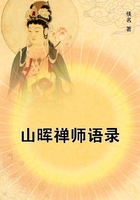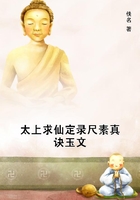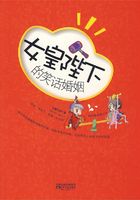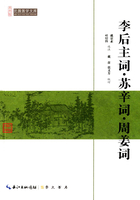AND then Leonora completely broke down--on the day that they returned to Branshaw Teleragh. It is the infliction of our miserable minds--it is the scourge of atrocious but probably just destiny that no grief comes by itself. No, any great grief, though the grief itself may have gone, leaves in its place a train of horrors, of misery, and despair. For Leonora was, in herself, relieved. She felt that she could trust Edward with the girl and she knew that Nancy could be absolutely trusted. And then, with the slackening of her vigilance, came the slackening of her entire mind. This is perhaps the most miserable part of the entire story.
For it is miserable to see a clean intelligence waver; and Leonora wavered.
You are to understand that Leonora loved Edward with a passion that was yet like an agony of hatred. And she had lived with him for years and years without addressing to him one word of tenderness. I don't know how she could do it. At the beginning of that relationship she had been just married off to him. She had been one of seven daughters in a bare, untidy Irish manor-house to which she had returned from the convent I have so often spoken of. She had left it just a year and she was just nineteen. It is impossible to imagine such inexperience as was hers. You might almost say that she had never spoken to a man except a priest.
Coming straight from the convent, she had gone in behind the high walls of the manor-house that was almost more cloistral than any convent could have been. There were the seven girls, there was the strained mother, there was the worried father at whom, three times in the course of that year, the tenants took pot-shots from behind a hedge. The women-folk, upon the whole, the tenants respected. Once a week each of the girls, since there were seven of them, took a drive with the mother in the old basketwork chaise drawn by a very fat, very lumbering pony. They paid occasionally a call, but even these were so rare that, Leonora has assured me, only three times in the year that succeeded her coming home from the convent did she enter another person's house. For the rest of the time the seven sisters ran about in the neglected gardens between the unpruned espaliers. Or they played lawn-tennis or fives in an angle of a great wall that surrounded the garden--an angle from which the fruit trees had long died away.
They painted in water-colour; they embroidered; they copied verses into albums. Once a week they went to Mass; once a week to the confessional, accompanied by an old nurse. They were happy since they had known no other life.
It appeared to them a singular extravagance when, one day, a photographer was brought over from the county town and photographed them standing, all seven, in the shadow of an old apple tree with the grey lichen on the raddled trunk. But it wasn't an extravagance.
Three weeks before Colonel Powys had written to Colonel Ashburnham:
"I say, Harry, couldn't your Edward marry one of my girls? It would be a god-send to me, for I'm at the end of my tether and, once one girl begins to go off, the rest of them will follow." He went on to say that all his daughters were tall, upstanding, clean-limbed and absolutely pure, and he reminded Colonel Ashburnham that, they having been married on the same day, though in different churches, since the one was a Catholic and the other an Anglican--they had said to each other, the night before, that, when the time came, one of their sons should marry one of their daughters. Mrs Ashburnham had been a Powys and remained Mrs Powys' dearest friend. They had drifted about the world as English soldiers do, seldom meeting, but their women always in correspondence one with another. They wrote about minute things such as the teething of Edward and of the earlier daughters or the best way to repair a Jacob's ladder in a stocking. And, if they met seldom, yet it was often enough to keep each other's personalities fresh in their minds, gradually growing a little stiff in the joints, but always with enough to talk about and with a store of reminiscences. Then, as his girls began to come of age when they must leave the convent in which they were regularly interned during his years of active service, Colonel Powys retired from the army with the necessity of making a home for them. It happened that the Ashburnhams had never seen any of the Powys girls, though, whenever the four parents met in London, Edward Ashburnham was always of the party. He was at that time twenty-two and, I believe, almost as pure in mind as Leonora herself. It is odd how a boy can have his virgin intelligence untouched in this world.
That was partly due to the careful handling of his mother, partly to the fact that the house to which he went at Winchester had a particularly pure tone and partly to Edward's own peculiar aversion from anything like coarse language or gross stories. At Sandhurst he had just kept out of the way of that sort of thing. He was keen on soldiering, keen on mathematics, on land-surveying, on politics and, by a queer warp of his mind, on literature. Even when he was twenty-two he would pass hours reading one of Scott's novels or the Chronicles of Froissart. Mrs Ashburnham considered that she was to be congratulated, and almost every week she wrote to Mrs Powys, dilating upon her satisfaction.
Then, one day, taking a walk down Bond Street with her son, after having been at Lord's, she noticed Edward suddenly turn his head round to take a second look at a well-dressed girl who had passed them. She wrote about that, too, to Mrs Powys, and expressed some alarm. It had been, on Edward's part, the merest reflex action. He was so very abstracted at that time owing to the pressure his crammer was putting upon him that he certainly hadn't known what he was doing.















